
I love introducing people to my “golden garden.” This garden has year-round yellow and gold color. I managed this by incorporating plants with sequential moments of bloom and other interest, carrying the color theme through the entire year. This bed needs to look good from the front and the back, as it is seen from my office, across the pond, and from my driveway. It has full-sun exposure except where shade is provided by trees within the garden.

Below, I list the plants that make up this garden, the role each plant plays, and the season in which each plant really shines. Using these design principles, you can create a similar garden in your own landscape.
Early winter

Stars in the garden (conifers)
- ‘Louie’ Eastern white pine (Pinus strobus ‘Louie’, Zones 4–9)
- Golden Duchess® Eastern hemlock (Tsuga canadensis ‘MonKinn’, Zones 4–7)
- ‘Golden Charm’ thread-branch cypress (Chamaecyparis pisifera ‘Golden Charm’, Zones 4–8)
- Feelin’ Sunny® deodar cedar (Cedrus deodara ‘Monkinn’, Zones 7–9)
- ‘Whipcord’ Western red cedar (Thuja plicata ‘Whipcord’, Zones 5–7)

Stars in the garden (evergreen background plants)
- ‘Sky Pencil’ Japanese holly (Ilex crenata ‘Sky Pencil’, Zones 5–9)
- Plum Passion® heavenly bamboo (Nandina domestica ‘Monum’, Zones 6–11)
- Sparkler® willow-leaf stachyurus (Stachyurus salicifolius ‘MonEmeri’, Zones 7–10)
- Mountain pepper (Drimys lanceolata, Zones 7–10)
In winter, when most plants are dormant, golden conifers really have a chance to shine. Evergreen background plants provide structure and necessary contrast against the conifers. Sparkler® willow-leaf stachyurus carries a suggestion of contrast in the touch of red in its yellow stems. That red is echoed in the leaves of Plum Passion® heavenly bamboo.
Late winter/spring
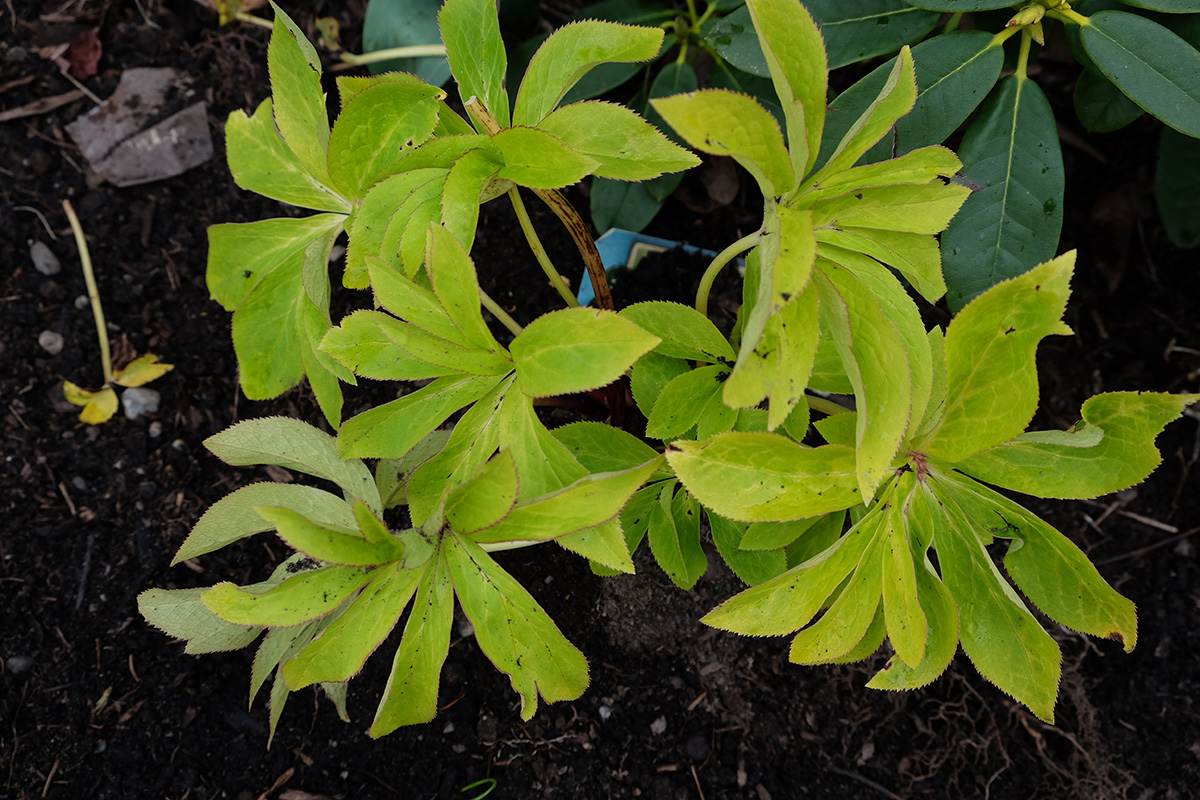
Stars in the garden
- ‘Little Suzie’ witch hazel (Hamamelis virginiana ‘Little Suzie’, Zones 3–8)
- ‘Sunburst’ witch hazel (Hamamelis × intermedia ‘Sunburst’, Zones 5–8)
- Winter hazel (Corylopsis spicata, Zones 5–8)
- Sparkler® willow-leaf stachyurus (Stachyurus salicifolius ‘MonEmeri’, Zones 7–10)
- ‘Jetfire’ daffodil (Narcissus ‘Jetfire’, Zones 4–8)
- ‘Golden Bells’ daffodil (Narcissus bulbocodium ‘Golden Bells’, Zones 3–8)
- ‘Julia Jane’ daffodil (Narcissus romieuxii ‘Julia Jane’, Zones 5–9)
- ‘Apricot Blush’ hellebore (Helleborus × hybridus ‘Apricot Blush’, Zones 3–9)
Late winter brings golden blooms to the garden from trees, shrubs, and perennials, especially various witch hazels. ‘Apricot Blush’ hellebore’s amazing yellow foliage helps carry the golden theme from winter into spring. When spring is exploding, this garden has amazing interest. The conifers are still shining bright, but other plants like daffodils begin to have their moment, carrying golden hues into spring and summer.
Summer
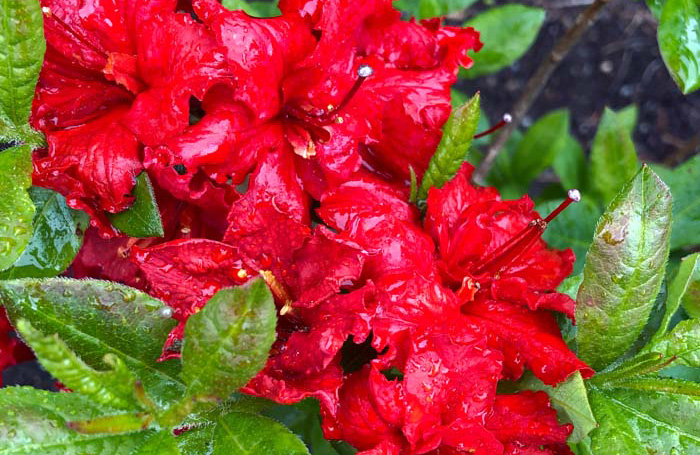
Stars in the garden (deciduous contrast foliage)
- ‘Crimson Pygmy’ Japanese barberry (Berberis thunbergii ‘Crimson Pygmy’, Zones 4–8)
- Black Tower elderberry (Sambucus nigra ‘EIFFEL 1’, Zones 4–8)
- ‘Valley Valentine’ andromeda (Pieris japonica ‘Valley Valentine’ Zones 5–8)
- ‘Red Sunset’ azalea (Rhododendron ‘Red Sunset’, Zones 5–8)

Stars in the garden (blooming plants)
- ‘Sunburst’ magnolia (Magnolia ‘Sunburst’, Zones 4–8)
- ‘Eddie’s White Wonder’ dogwood (Cornus ‘Eddie’s White Wonder’, Zones 7–9)
- Katsura tree (Cercidiphyllum japonicum, Zones 4–8)
- ‘Hartlage Wine’ sweetshrub (Calycanthus × raulstonii ‘Hartlage Wine’, Zones 6–9)
- ‘24K Gold’ fountain grass (Pennisetum alopecuroides ‘24K Gold’, Zones 4–9)
- ‘Cape Blano’ (Sedum spathuifolium ‘Cape Blanco’, Zones 5–9)
- ‘Red Fred’ heather (Calluna vulgaris ‘Red Fred’, Zones 5–8)
- Creeping saxifrage (Saxifraga stolonifera, Zones 6–9)
One thing about a garden with lots of gold and yellow is that it can sometimes be overwhelming in the bright sun. Too much yellow is washed out in the bright days of summer. This is when the interplay of cool, deciduous contrast plants calm down the plant palette. Darker plants like Black Tower elderberry and ‘Red Sunset’ azalea fill this roll perfectly. ‘Crimson Pygmy’ Japanese barberry has the dual role of having dark foliage but yellow flowers. More flowers abound in summer from stars like ‘Sunburst’ magnolia and katsura tree, providing some shade against the glaring sun, which would otherwise wash out the other colors in the bed. But I don’t forget about contrast, even when choosing blooming plants. ‘Hartlage Wine’ sweetshrub has chartreuse foliage on graceful, arching branches and wine-red flowers.
Fall

Stars in the garden
- ‘Eddie’s White Wonder’ dogwood
- ‘Little Suzie’ witch hazel
- ‘Sunburst’ witch hazel
- Winter hazel
- Katsura tree
Yellow—and the garden’s contrast color, red—burst to life in fall. Winter hazel and katsura tree have yellow fall foliage, while ‘Eddie’s White Wonder’ dogwood has red foliage. Various witch hazels fade to yellow and red as well. As winter settles in, the bright golden garden stands out again in contrast to the winter grays.
Despite the long list of plants, the maintenance in this garden is pretty easy. Good spacing allows for slow growth for the conifers. Upright plants also require little pruning. Fall cleanup consists of leaf raking and spot weeding. Despite generous spacing, it’s a dense planting, so there is very little room for weeds to grow.
—Susan Calhoun is the owner of Plantswoman Design in Bainbridge Island, Washington.
Fine Gardening Recommended Products
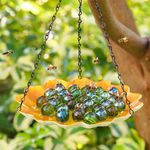
Bee Watering Station with Vivid Flower Design
Fine Gardening receives a commission for items purchased through links on this site, including Amazon Associates and other affiliate advertising programs.
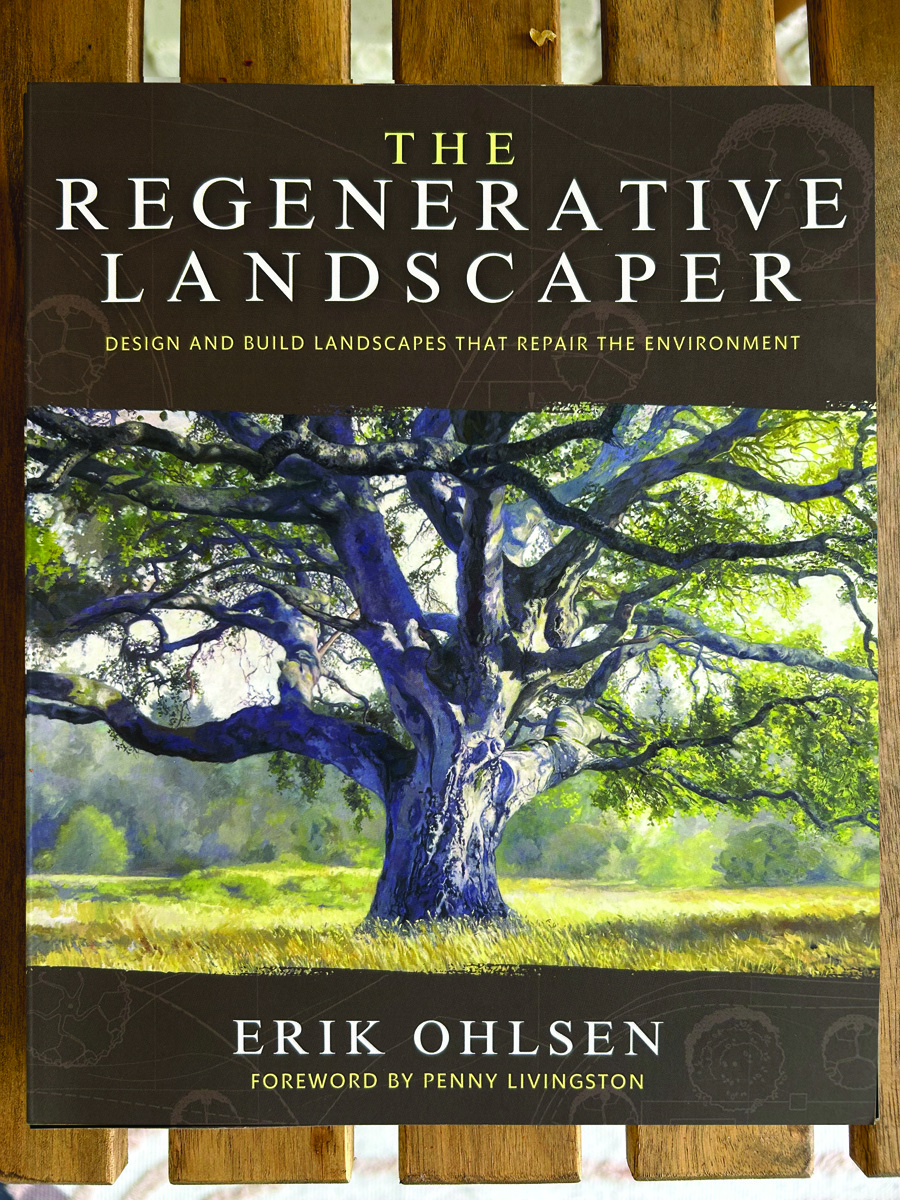
The Regenerative Landscaper: Design and Build Landscapes That Repair the Environment
Fine Gardening receives a commission for items purchased through links on this site, including Amazon Associates and other affiliate advertising programs.




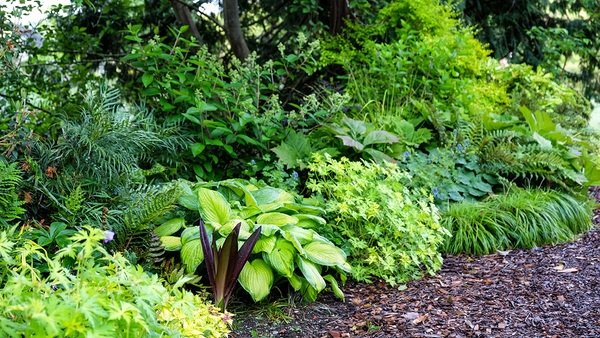

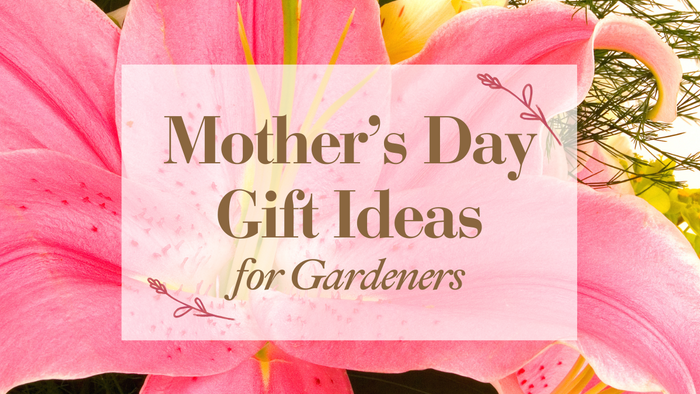
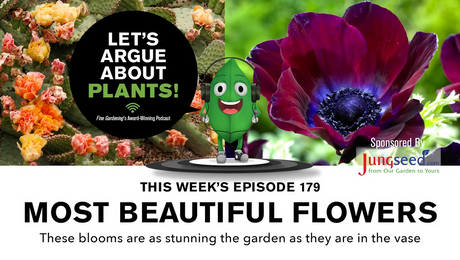











Comments
Log in or create an account to post a comment.
Sign up Log in